Summer is a season filled with warmth, sunshine and opportunities for personal and professional growth. With the current stresses and uncertainties in our societies and environments, it is important to make the most of this time by engaging in activities and practices (new and forgotten) that not only bring you joy but also enhance your skills and well-being.
In this article, I will suggest various options you could explore over the summer in the hope that at least one of them will inspire you to give it a go. As each of us take some time to build our resilience muscle, it will set us up strongly for the rest of this year.
Different traditions view the summer season differently. I like the Ayurveda perspective which believes summer symbolises the Pitta dosha. This is, characterised by heat, intensity and transformation. A time to balance and pacify Pitta through cooling practices, nourishing foods and calming activities. It encourages self-care, staying hydrated and maintaining a harmonious mind-body connection. Sounds like an invitation to ensure each and every one of us is prioritising how we are – remember the phrase we use ‘How you are is how you …..’ The missing word is for you to complete. For us, at Sandown Business School – we often complete this phrase by saying ‘How you are is how you coach’. What will you add to make this phrase yours?
Planning a purposeful summer
Before diving into various activities, it’s crucial to create a plan that aligns with your goals and interests. Set aside some time to reflect on what you hope to achieve during the summer months. Consider your personal and professional aspirations – what is going to make the difference to you? Outline specific objectives that will help you reach them. And if that feels too structured – what do you need to make life easier? Go with your gut instinct. A way of capturing your planning could be using mind maps or systemic constellations where you map out your system. I use this frequently with my clients and find it really supports them in being able to think differently. If you always write a list, try a different approach. Use a different part of your brain and I am sure you will be encouraged by what you uncover.
Areas of Focus
After capturing what it is you want to achieve think about different categories and how each of these categories can support your objectives/goals. The areas I am covering in this article are:
- Pursuing Personal Development.
- Strengthening Professional Growth.
- Nurturing physical and mental well-being.
- Exploring new places and cultures.
- And… What other categories will support you?
Remember to think widely in order to then narrow down your focus.
Pursuing Personal Development
Hobbies and Creative Outlets: What activities bring you joy and allow you to express your creativity. It often can be something that you didn’t know would give you such pleasure. Try different things and be conscious of the feedback your whole system will receive. You will know if this is something for you.

An example of this I love using Canva – who knew! I enjoy creating designs, building infographics and building models that capture theory and give the how-to for practical application. My subscription to Canva was one of the best things I have discovered. However, if you had said to me Canva is a creative tool for you to use to design – I would have said: “I am not creative and I don’t design”. My (outdated) belief system would have stepped in and said ‘That is not for you Pheona!’. However, I didn’t have that pressure on me when I started using it and saw it more as a practical way of capturing the images in my head and a necessity for the work we are creating at Sandown Business School. My focus was on making sure our courses were the best they could be for our students, not on whether I was creative!
Whatever way you make sense of the activity – have a go and then challenge yourself ‘Does my internal voice need updating? Have I got a view on what creative and creativity ‘should’ look like? How can I update my internal language?
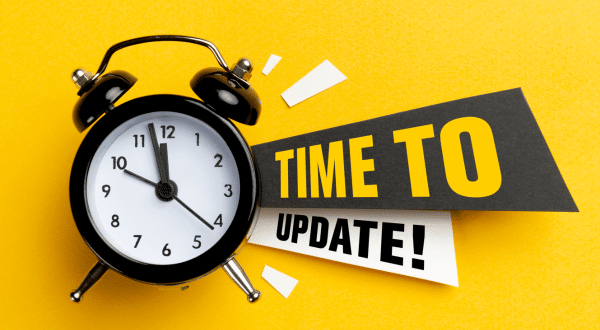
Learning New Skills. What new skills do you want or need to learn? How will these new skills enhance your current practice or are they completely left field? In my coaching role, I am always encouraging my clients to think or behave in a different way that will support them to achieve their goals. However, I appreciate how brave it can be to step out and do something as the beginner. Who wants to be known or seen as the beginner, especially in our Western Society where ‘status’ is attached to expertise and knowledge.
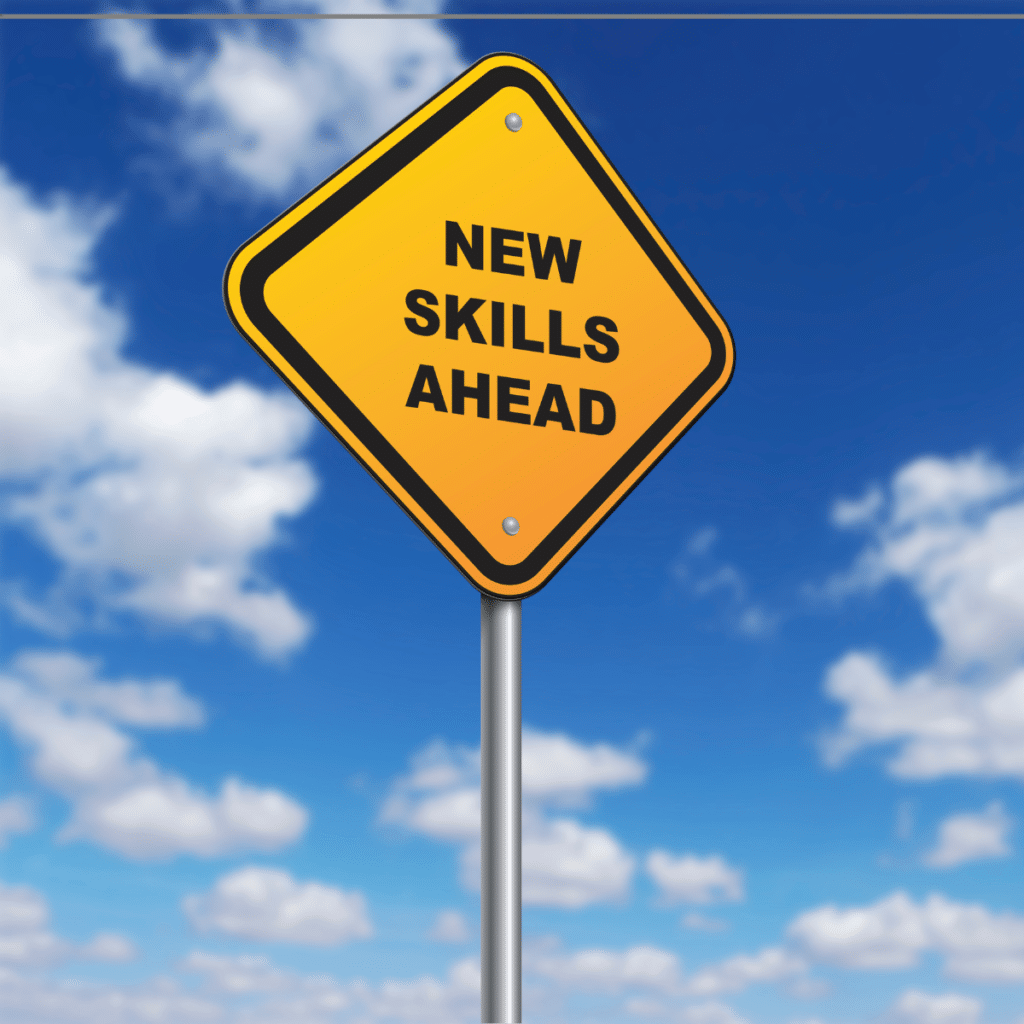
Not knowing is often seen as a failure and for most people, they are paid to know as part of their job expectations. We need to develop the ability to be comfortable with the uncomfortable. Being uncomfortable does not need to equal stress, failure, threat or any other challenging language we use. As we use language with a threat, there is a direct impact on our bodies. Instead, discomfort could be managed with ease. How can we link those two words up so that we know, with our adult wisdom and experience we can bring the ‘ease’ of ‘how we are’ into a situation which has discomfort. Standing from that internal place of ‘ease’ we can eternally manage discomfort. Play with this and see how it works for you.

Reading and Self-Education: The summer is a great time for reading – especially if you are taking some time off work. The key here is to set aside regular reading time to explore topics that intrigue you. And this can be 10 minutes, 1 hour, or if you are by the pool and without interruptions – a day! Whatever your timescale – build the muscle of regularly stopping to read/listen/learn. Whether it’s fiction, non-fiction, or self-help books, reading broadens your perspective and enhances your knowledge. It can help you get out of the weeds and start to see a wider landscape. We all work so hard – we can forget to look up. You can also delve into online resources, podcasts, or audiobooks for a diverse range of learning opportunities and there is so much to choose from in this category. With our expanding understanding and awareness of neuro-diversity, more resources are becoming available. We are now left with the question: What do you want to explore?

Strengthening Professional Growth
Online courses and Webinars. Now I have to say quickly I have a bias here. Running online courses focused on personal and professional development using coaching as the vehicle for that growth – is what I do each and every day. For those of you who are interested in strengthening this part of your life, come and check us out. However, there are many courses that can give you career and personal development. Again, linking this back to your goals will really support you here otherwise it can be overwhelming the volume of learning that is now available to us.
Networking. Are there industry events, conferences or webinars to connect with like-minded professionals to expand your network? Building strong professional relationships can open the door for new opportunities and/or collaborations. Here at SBS, we are part of the All Ireland Business Foundation (AIBF) and are proud to have received their ‘Best In Class 2023 Award’. We have been delighted at the networking opportunities we have with this community of professionals.
Explore and invest your time in those communities that have open arms. The phrase ‘finding your tribe’ has been a phrase used often in the last few decades. Where is your tribe?
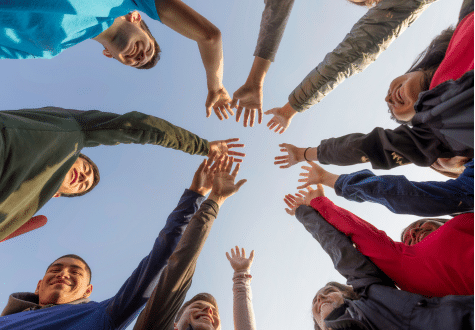
Volunteering and Community Involvement. Are there schemes or community projects that would be useful for you to engage with? It can be a source of encouragement to give back to society, but will also strengthen interpersonal skills, leadership abilities, self-regulation and lastly remind you of the ways other people are getting on with their lives. Someone I know has an incredibly busy job with a global focus and travels approximately 80% of the year (although this has now changed post-Covid). They rarely take time off for holidays and if they do it tends to be really short breaks of between 3-5 days at a time. However, at Christmas, they always get involved with the charity Shelter and give two days of their time. There are probably many motivations for them – but something they said once, which has stayed with me, is how easy it is to forget how others are living when you are so busy doing what you are doing. The other point to mention here is that very few people know they do this.
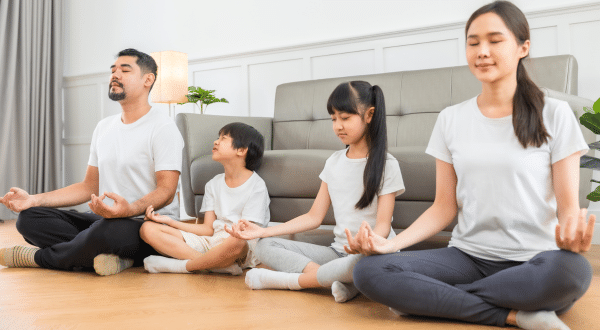
Nurturing Physical & Mental Health
One of the biggest areas of opportunity is Outdoor activities and exercise. Make the most of the summer weather by engaging in outdoor activities. Yoga in the park, combat training in the park, cycling etc. etc.
Embrace Nature by spending time outdoors, immerse yourself in the beauty of nature and engage in activities like hiking, picnics, or simply relaxing in a park. Nature has a calming effect on the mind, reduces stress, and enhances overall well-being. We also know that we often can suffer from a lack of Vitamin D which may lead to weakened bones, increased risk of fractures, muscle weakness, fatigue and compromised immune function. Vitamin D deficiency has also been associated with mood disorders, such as depression and impaired cognitive function. So often we think there is something seriously wrong with us if we are experiencing these systems, and it could just be a lack of Vitamin D. Please know I am not trying to take the place of any specialist advice and would encourage you to always seek professional guidance if you are unwell – but do think about whether you are getting enough Vitamin D.

The summer offers opportunities for social connections and connecting with loved ones. Prioritize spending quality time with friends and family, whether it’s through gatherings, vacations, or simply enjoying a shared activity. Meaningful connections provide support, joy, and a sense of belonging, nurturing your mental health. Utilising intentional breathing techniques, such as deep belly breathing, can be a powerful tool in developing strong mental health. This practice helps regulate the nervous system, reduces stress and promotes relaxation. By focusing on the breath, you can cultivate mindfulness, enhance emotional well-being, and foster a sense of calm and clarity within the mind. Such an easy way to build strong mental health in the day-to-day and you can practice without drawing any attention to what you are doing.
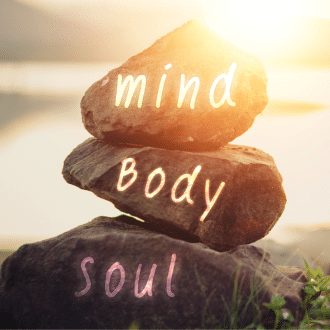
Practising Mindfulness and Meditation: Incorporate mindfulness techniques into your daily routine by setting aside a few minutes each day for meditation. This can be in the format of deep breathing exercises, or simply being present in the moment. We know that mindfulness promotes clarity, focus and emotional well-being and yet seem to struggle to build it into our routine – or hold a belief we are not able to do it or we are not doing it properly! To give a few different ways of experiencing Mindfulness: If you have a dog and go for a walk how can you practice being present with your dog and your surroundings? If you are standing cooking – how can you be fully present with the ingredients, the smells and the ‘in the moment’ creativity of preparing a meal. If you are working at your computer, take a pause – stretch and do an energy check starting from your feet and working through all parts of your body. There are many different ways – start where you are and build to where you want to be.
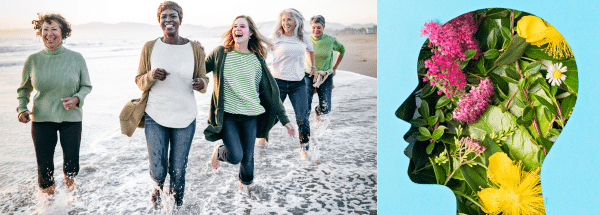
Taking time for self-care: This might be the one that you yawn at, or switch off or even say ‘I don’t know how to do that or where to start’. In which case, start with the easy areas. Are you getting enough sleep? Are there sleeping patterns that are dis-regulating your self-care? Are you eating nutritious meals? Can you experiment with cooking and different ingredients?
Self-care can be viewed as building and strengthening polyvagal anchors. Polyvagal anchors support our internal systems by regulating the autonomic nervous system. They help activate the parasympathetic branch of our nervous system, promoting relaxation, reducing stress and enhancing overall well-being. These anchors create a sense of safety and stability, supporting our physiological and emotional equilibrium. So there is science in self-care – it is often how it has been promoted that creates our reactions. A way to create polyvagal anchors is to think of three categories: Who. Who can you turn to or spend time with that co-regulates with you in a healthy way? What. What can you practice, regularly, that enables you to self-regulate? Where. Where are you when you are positively regulating your internal state? Indoors? Outdoors? In a safe place/favourite place/healthy space?

Exploring New Places and Cultures
Travel. Covid brought a whole new meaning to travel and travel awareness. Even within our own countries – travel is even more expensive, time-consuming and often full of interruptions and cancellations. That said, travel does expand our worldview and provides opportunities to create lasting memories. Locally – there are always places to check out that you haven’t visited before. And this can be done by walking, cycling or driving Again think creatively about the whole journey – rather than just the destination. Internationally – being mindful of your footprint – What would be a place that would feed your soul?
Art and Culture. This can be a bit of a hit-and-miss suggestion! However, there probably are different local experiences that would come under this genre. It doesn’t have to be (although it could be!) art galleries, museums or the theatre (again costs may be a challenge here) but it could be a local community group putting on an Am Dram production, religious festivals that you could join in with you – whatever your faith and/or belief. Cuisine – trying new and different foods. What online services could you explore to see what is really happening in your area or further afield? You will probably be surprised at the variety and choice available.
What are the benefits?
It is often difficult to quantify the benefits of different activities, especially when they are related to how you feel, your health and regulation of your nervous system and your overall feeling of well-being. It also depends on whether you need to: be restored, be recharged, reset parts of your life or (and yes another ‘r’) reinvigorate passion in your life. You know what it is you need. Again trust your gut instinct. And with that knowledge, decide how you will measure the effectiveness of whatever you choose.
But it does raise the question:
‘How do you measure the impact of new activities and how they are beneficial to your health and wellbeing?’
If I may go off on a tangent for a moment, thinking about measurement, I recently went to see a Naturopath* as a first experience, and it was quite remarkable. Apart from the many reports I received, I also was given an overall score for my health and well-being and a suggested health plan moving forward.
*A naturopath is a healthcare practitioner who emphasises natural healing methods and holistic approaches to promote wellness. They combine traditional healing wisdom with modern scientific knowledge to address the root causes of health issues.
However, getting back on track, whatever choice(s) you make when deciding how to ensure you make the most of the summer – by engaging with some of these activities (and maybe more you could add to these) you will:
- Acquire new skills and knowledge
- Enhance your personal growth & develop professionally, especially if you decide to complete one of our programmes on our coaching pathway (couldn’t resist)
- Demonstrate your openness to continual learning
- Be challenging yourself
- Illustrate a growth mindset
- Reduce your stress and regulate your nervous system (moving and staying in the parasympathetic)
- Gain a broader perspective
- Gain a different perspective on how others live their lives.
- Boost your creativity
- Build valuable connections and friendships
- Experience different cultures and ways of being
And this just names a few of the benefits Taking time out for you is no longer ‘a nice to have’ but necessary. Being able to self-regulate and co-regulate in our ever-changing environments is key to us being able to thrive in a potentially threatening landscape.
Final Thoughts
Summer offers us a precious opportunity to invest in ourselves both personally and professionally. By utilising this season with forethought and planning you can optimise your experiences. Embrace all the possibilities the summer can bring. We all have the same amount of time – what changes is how we use it. How will you use your time this summer?
FAQs
How long should I dedicate to each activity? It depends on the activity, your personal circumstances, commitments and preferences. What will determine the time is to ensure you are striking a balance and allocating sufficient time for the impact to be felt.
Can I combine multiple activities? Yes – please do. Combining can actually increase the joy experienced.
Do I need to follow a strict schedule? Whilst a routine can support you to remember to do the activity and will increase the impact, the key is to find freedom in the activity – rather than sticking to a schedule – otherwise the schedule can get in the way. Work out in your planning stage – what will work for you.
Oh, professionals, listen here,
Summer’s calling, it’s that time of year.
Put down your spreadsheets, loosen your ties,
Let’s make the most of sunny skies!
Ditch the meetings, forget the stress,
It’s time to give yourselves a well-deserved recess.
Flip-flops on, shades in place,
Let’s embrace the summer’s grace.
From nine to five, you work so hard,
But now it’s time to let down your guard.
Grab your beach towels, slather on lotion,
Enjoy the sun with pure devotion.
Take a break from endless emails and calls,
Trade them for barbecues and beach balls.
Sip on cool drinks, feel the sand in your toes,
Let go of worries, forget all your woes.
Explore new places, both near and far,
Discover hidden gems, wherever you are.
From city escapes to nature’s retreat,
Summer adventures can’t be beat.
But remember, dear professionals, don’t forget,
To find a balance, that’s the truest bet.
Enjoy the summer, soak up the fun,
Then return with energy when it’s all done.
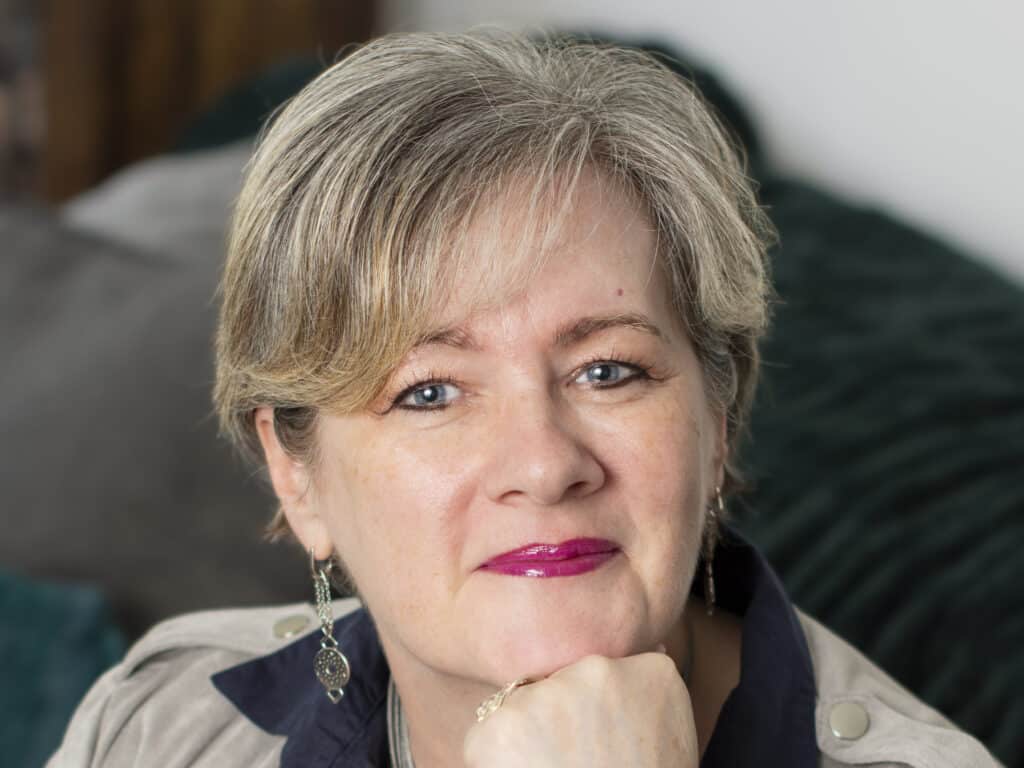
Pheona Croom-Johnson is Co-Founder and Academic Director of Sandown Business School. She has been in the OD field for over 35 years and mainly works as a Confidant and Thought Partner with C-Suite and Senior Leaders. Pheona is a triple credentialed Master Coach, Master NLP Trainer, credentialed Supervisor, Team Coach Supervisor and Mediator all with strong foundations in psychology. Book a call to find out about coaching, leadership and/or supervision.

